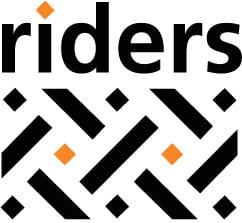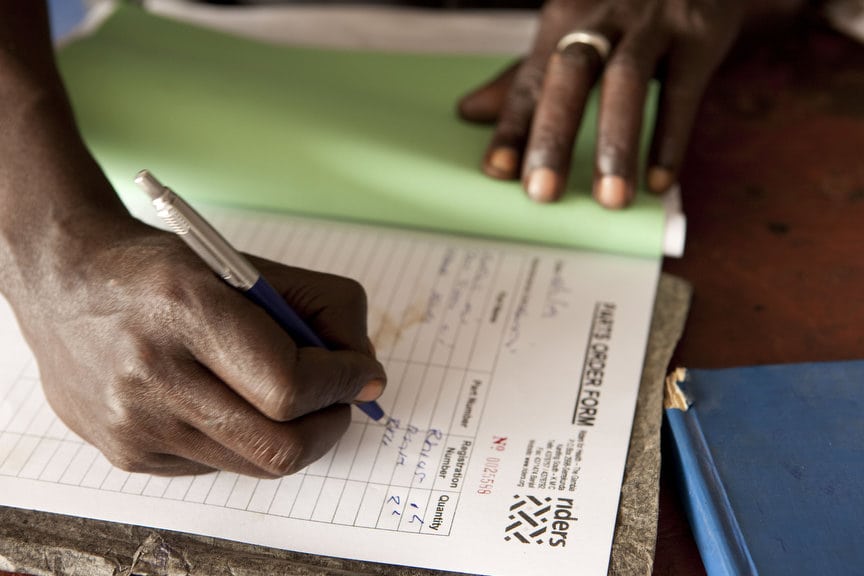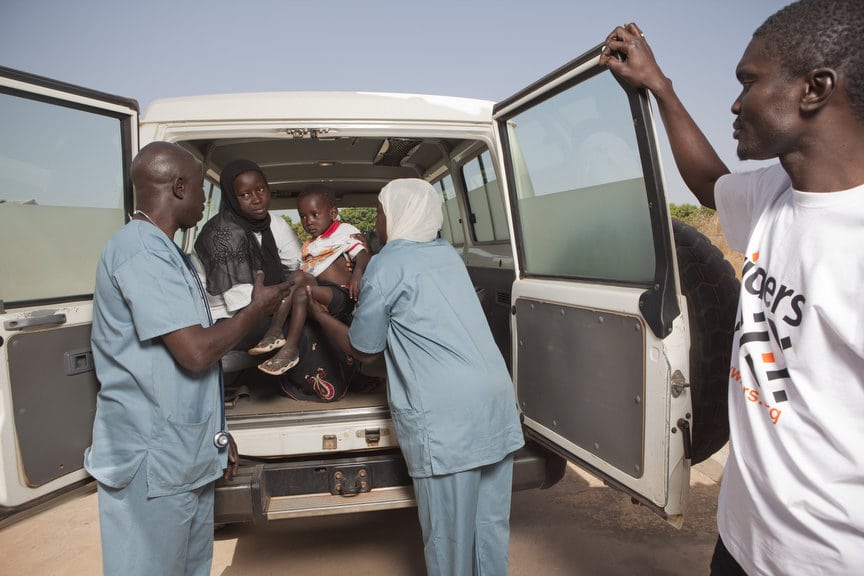 Riders for Health is a social enterprise, which works in seven countries in Africa to manage and maintain vehicles and fleets that carry health care to remote rural communities. They are transforming health care for 14 million people. Matthew Hann, Communications Manager at Riders for Heath gives an in-depth description of how they utilise data in practice and on the ground.
Riders for Health is a social enterprise, which works in seven countries in Africa to manage and maintain vehicles and fleets that carry health care to remote rural communities. They are transforming health care for 14 million people. Matthew Hann, Communications Manager at Riders for Heath gives an in-depth description of how they utilise data in practice and on the ground.
—
The basis of our work is on the planned maintenance of vehicles. It is a simple intervention but it is overlooked as if it doesn’t matter. It does matter. It matters because well maintained vehicles are predictable and reliable. And predictability matters because communities need to know when health care – vaccinations, immunizations, education – is coming and that they can rely on it coming.
Managing vehicles is every bit as fundamental a part of health care as lifesaving drugs and training medical staff. Without transport, communities simply do not get the drugs or care they need. And that is why, in 2014, people still die of the easily preventable diseases that most of the world has confined to history lessons.
The birth of Riders for Health may have been an emotional one, based on anger at this injustice, but the solution has always centred around bringing order and systems to managing vehicles. It is about data.
There is a feeling that both data and maintenance is boring. That it is not glamorous. This might be true, although we’d disagree. At the very least they are both vital tools both for understanding a job, and for getting it done.
We actually think there is something wonderful about vehicles. Vehicles produce data every time they move: odometers, fuel gauges, speedometers, miles per gallon – each of these tells us something about what a vehicle is doing.
Riders for Health’s model is based on knowing the cost of running the vehicle per kilometre. All the costs of running the vehicle over the lifetime of a vehicle is calculated and spread out equally so that each kilometre a vehicle travels is given a charge. We call it our ‘cost per kilometre’. It means that if a vehicle travels 800KM in a month the partner will know exactly how much it will cost. If their budget is $1,000 per vehicle for a month, they will know exactly how many kilometres that vehicle can travel.
This puts understanding data at the very heart of our work. For example, if the cost per kilometre is based on changing tyres every 30,000KM, while in reality some tyres are changed after only 20,000KM, we need to know why that is. By understanding the data we can respond to issues ahead of time. With the tyres, it means we can look at whether drivers or riders need more training, or maybe the make of tyre is not sufficient for the terrain.
Changing tyres early might mean that over the lifetime of the vehicle it needs an extra set of tyres that hadn’t been budgeted for. With thousands of vehicles, travelling over a collective 10 million KM each year, it is vital that we understand as much data as possible.
As Riders has grown the amount of information we can collect and understand has also increased. And as our programmes have become more complex and the claims we make about the benefits of our work have needed to carry more weight, we have had to collect a second type of data. Data about the impact that our work has on health care and health systems.
This is why Riders developed its monitoring and evaluation capabilities, to look at three areas of our impact. Our goal is now to assess our:
- Outputs – the number of vehicles we manage or kilometres they travel.
- Outcomes – the number of people this allows a health worker to see.
- Impact – the benefit this has on the health system.
The outputs and outcomes are based on data and information that we generate. While we can always improve on how the data is collected, we are confident in the conclusions we can draw from it. For any organisation, impact data is more challenging. There are more factors working on health systems than just our work, and collecting data is dependent on other sources. Improving our understanding of this impact is where we can make the biggest advances.
 This is why the independent academic study of Riders’ work in Zambia that is currently being carried out by Stanford University Global Supply Chain Management Forum is so important. It has the resources and rigor to measure the impact of our work on health systems and, together with our own data from our other programmes will form part of the weight of evidence into the impact of our work.
This is why the independent academic study of Riders’ work in Zambia that is currently being carried out by Stanford University Global Supply Chain Management Forum is so important. It has the resources and rigor to measure the impact of our work on health systems and, together with our own data from our other programmes will form part of the weight of evidence into the impact of our work.
One of our most important challenges to achieving our goal of mobilising more health workers and ensuring everyone has access to health care, is in convincing partners and potential partners of the benefits of managing vehicles correctly. This is why we place such importance on data for monitoring and evaluation. We know that this can strengthen our ability to persuade and convince.
Funders have given us great opportunities to create better systems for collecting more accurate data and interpreting it in more detail. The necessity to demonstrate to funders, donors and partners that we are both doing what we claim operationally, and that it is having a positive benefit, allows us to be more confident in our own work. And it also means we have the information we need to shape our operations.
The current focus on measuring impact is hugely positive. For those of us working in innovation it gives us the tools and evidence we need to show that our models and programmes work and change societies. But it should never make us conservative or risk averse.
Being flexible and creative are some of the defining strengths of social enterprises like Riders. Together we should harness data as a tool that gives us a strong platform to make the innovative changes that will solve some of the world’s most intractable problems.
Thanks Matthew, and the whole team at Riders For Health for both their incredible work, and the learnings they have shared. For those of you working in charities and social enterprises, what data could you be collecting to enhance you projects in a similar manner? How much more value could you bring to your beneficiaries by applying a similar methodology?
To keep up to date with their latest news, be sure to follow Riders for Health on Twitter, and please ask them any questions. As ever, make sure you’re tweeting Markets For Good and sharing this great article.

